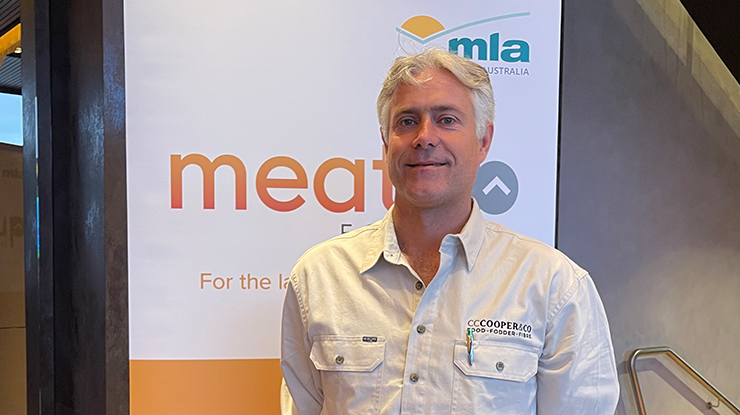
Forward thinking builds a resilient business
Opportunistic expansion, people management and a focus on genetics are just some of the ways the Cooper family has built their Jamestown-based Merino and cropping operation into a productive and sustainable business over five generations.
Leith Cooper, along with sons Tom and David, have six properties stretching from Broken Hill in far-west NSW to the Nullarbor Plain in WA, covering over 800,000ha. They run 40,000 ewes with followers along with a cropping operation, meaning good management is crucial.
By following a strong model of being risk averse and forward-thinking, the Coopers have built a resilient business model to stand the test of time.
Opportunistic expansion
In recent years, the Coopers have expanded their landholdings to build risk management into their business and balance their profit drivers.
“Our grandfather always believed that producing multiple commodities was an important risk management tool, so we’ve always tried to keep our grain and hay production and our livestock base gross income all in balance,” David said.
Realising they needed more country to run their sheep to support their cropping operation at Jamestown, the Coopers purchased Wonga Station near Broken Hill in 2005 as a block to boost their ewe numbers.
Since then, the Coopers have also purchased more land around Broken Hill and South Australia to support their growing flock.
In 2016, they made the decision to buy Madura Plains Station on the Nullarbor Plain in Western Australia because they saw an opportunity for the cheaper land per dry sheep equivalent (DSE) to meet their business needs.
“Anything that we purchase, we want to make it pay for itself in principal and interest within a reasonable timeframe. At the land value for the Madura block, we knew we could make it add up,” David said.
Retaining quality staff
Because the Coopers’ business spans three states and 1500km, they rely on managers to ensure their stock and crops are well looked after, and it gives them confidence when they aren’t on-site.
To do so, they focus on employing people more technically capable than themselves in specific business areas to share their knowledge, expertise and farming vision.
Once good employees are identified, the Coopers make sure they are given a level of freedom and trust that keeps them around for the long run.
“When you get good staff, try to retain them, give them responsibility and have confidence in what they are doing,” Tom said.
The approach means the Coopers have solid staff retention, including a number of long-term managers on their properties and specialist employees returning each year for hay and harvest. This makes life a lot easier for them than having to start with a fresh crop each time.
Long-term breeding objectives pay off
The Coopers have been focused on making genetic improvements in their Merino flock for a number of years, with particular attention to body weight and fleece value.
“We’ve been using a 7% micron premium index for a number of years, which is probably 50% on body weight and 50% on fleece value,” David said.
In their flock, they look for a plain bodied sheep that is easy to shear and achieves fleece weight through a longer staple length.
The Coopers are also focused on fertility, and want their ewes to produce lambs every year with high survival rates.
The focus has paid off – in a good year, the Coopers’ ewes can produce as much as 7–8kg of wool and they have been able to achieve premiums from micron reduction.
While the long-term objectives have been beneficial, the Coopers also keep an eye on the future when it comes to genetics.
“I think our sheep are getting genetically big enough now, so we need to start looking at eye muscle depth, more muscling and growth rate as the next step,” David said.
For more information on the Coopers’ business and how they use technology, their ram breeding selection and how they successfully managed succession, see MLA’s new Virtual Farm Tour video.



